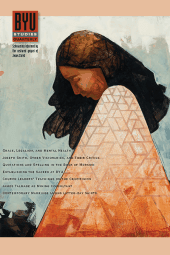Scholars studying Mormonism have documented Joseph Smith's preference for citing the Bible rather than the Book of Mormon in his sermons and writings. Terryl Givens asserts in his influential study of the book that Joseph Smith only made "brief allusions to the Book of Mormon" in his teachings. While it is easy to see confirmation of these conclusions in statistical studies of the number of references Joseph Smith made to biblical verses in comparison to the number he drew from the Book of Mormon, the meaning of these statistics has been less obvious. The general academic consensus, however, has been that Joseph Smith spent most of his time reading and pondering the Bible rather than the Book of Mormon. Philip Barlow, an exceptional scholar who has studied this issue carefully, notes that "compared to the Bible, the Book of Mormon was used surprisingly little. . . . There is little evidence that he [Joseph Smith] ever took time to study its contents as he did the Bible's." Barlow asserts, "The Book of Mormon was valued by its adherents, but it did not become the basis for early Church doctrine and practice—Smith's day-to-day revelations did that."
Conclusions such as this have contributed to a perception that the Book of Mormon exerted little influence on early Mormon thought or practice other than as a manifestation of Joseph Smith's prophetic calling. Grant Hardy offers a typical assessment when he argues that the Book of Mormon "contributes little to LDS ritual (aside from the wording of sacramental prayers)." These arguments have led scholars to consider the idea that the Book of Mormon played an insignificant role in shaping doctrine, teachings, or practices in the early Church.
